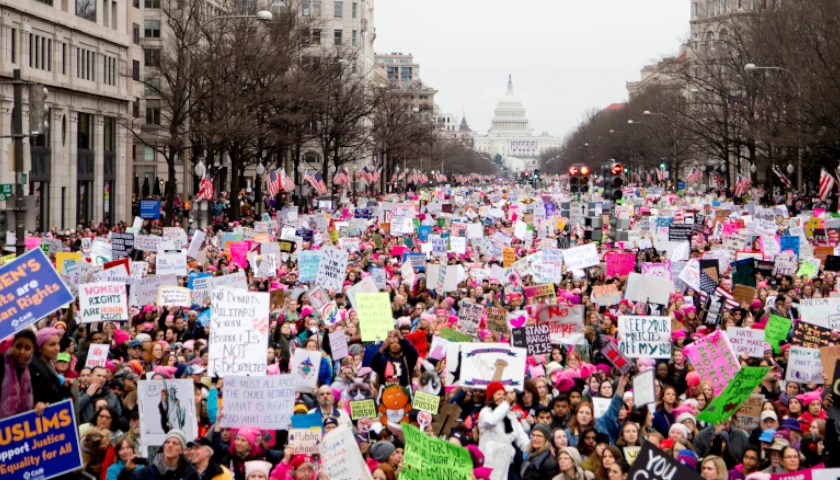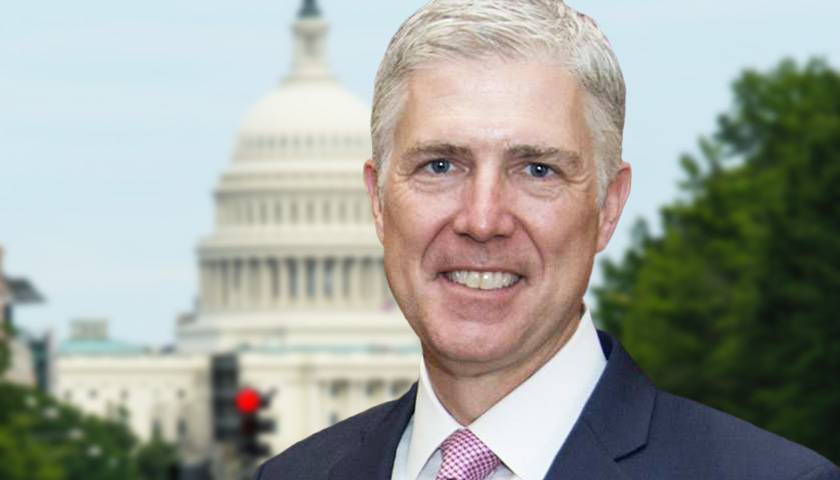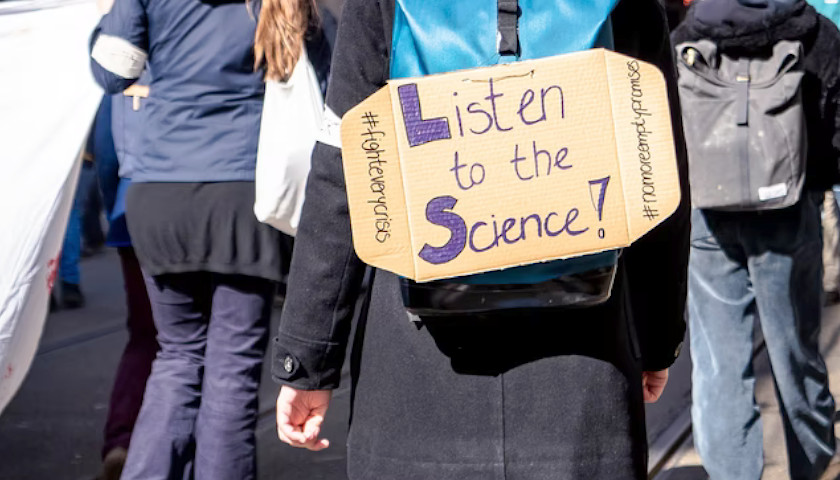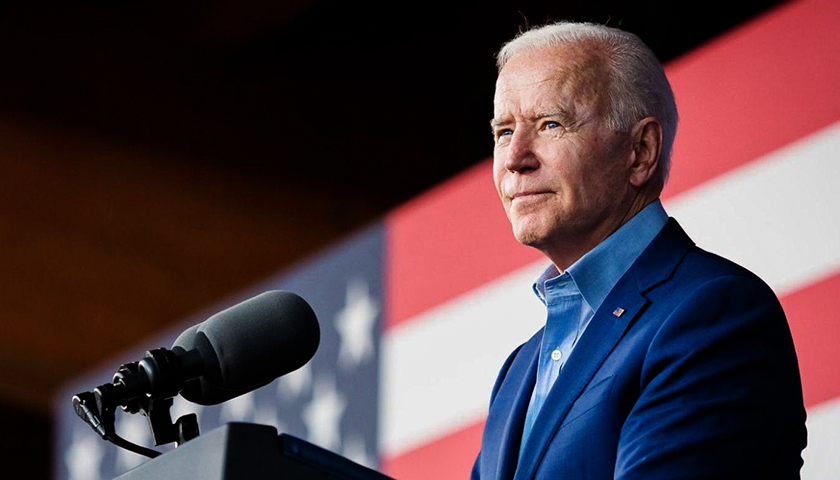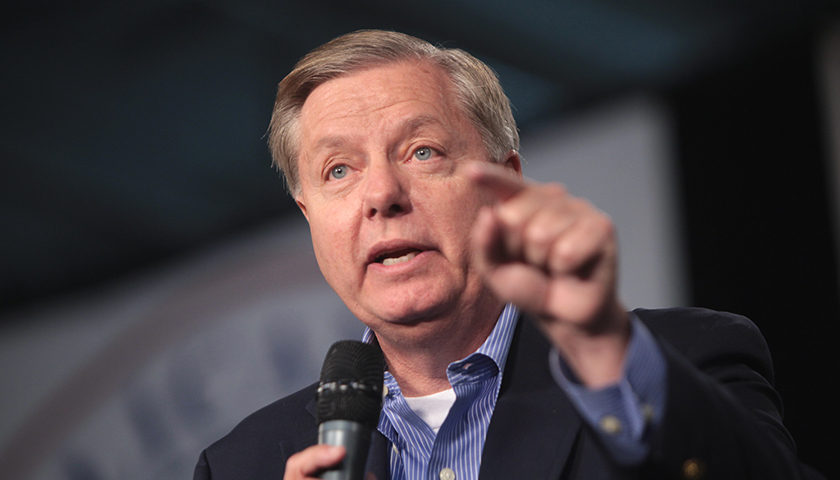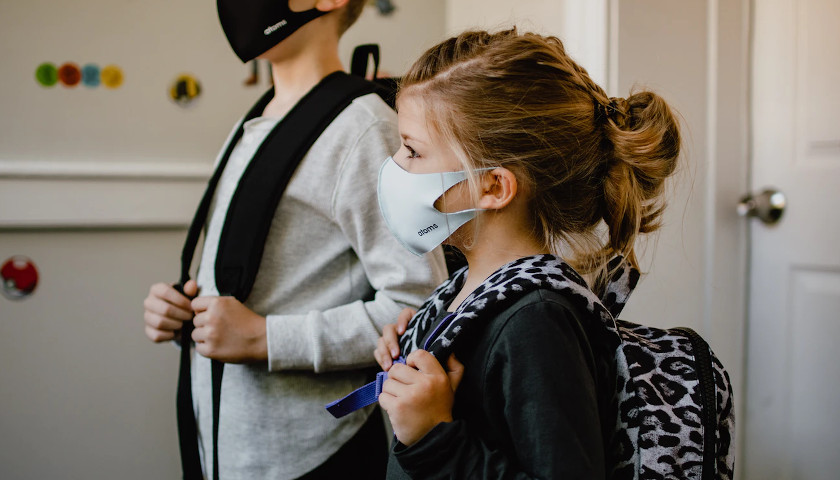House Judiciary Chairman Jim Jordan, R-Ohio, said Tuesday that the federal government has been weaponized to spy on Americans’ bank accounts and financial transactions.
Read MoreTag: Civil Liberties
Majority Says First Amendment ‘Goes Too Far,’ According to Poll
Free speech suppression on college campuses and social media censorship often spur debates over how far the First Amendment should go to protect Americans’ rights to express their opinions – and who should be entrusted with those decisions.
About 53% of Americans believe the First Amendment goes too far in the rights it protects, according to a new poll by the nonprofit Foundation for Individual Rights and Expression, or FIRE.
Read MoreJustice Gorsuch Says Pandemic Created ‘Greatest Intrusions on Civil Liberties’ in America’s Peacetime History
Justice Neil Gorsuch called government responses to the COVID-19 pandemic the “greatest intrusions on civil liberties in the peacetime history of this country” on Thursday.
Gorsuch made his comments in reaction to the Supreme Court’s Thursday dismissal of a case dealing with red states’ attempt to keep in place a Trump administration policy, Title 42, which allowed the U.S. to expel over 2.5 million migrants from the border due to a public health emergency. In an eight-page long statement attached to the decision, Gorsuch slammed an array of emergency power abuses employed by local leaders during the pandemic, from lockdowns to church closures.
Read MoreCommentary: ‘Authoritarianism’ May Be Necessary to Fight Climate Change, Cambridge Study Argues
A recent study published in American Political Science Review, a quarterly peer-reviewed academic journal published by Cambridge University, begins with a teasing question: “Is authoritarian power ever legitimate?”
For many, the answer is clearly no, concedes the study’s author—Ross Mittiga, an assistant professor of political theory at the Pontifical Catholic University of Chile. But Mittiga, in the abstract to the study, suggests otherwise:
Read MoreCommentary: A Closer Look at a Supreme Court Case That Could Help Decide the Legality of Biden’s Vaccine Mandate
Every now and again, an otherwise arcane legal topic suddenly becomes relevant to contemporary political debate. At that point, general commentary suddenly becomes filled with newly minted experts with strong positions on what is typically a nuanced issue. Thus, at various points during the past decade, Twitter saw a flood of hitherto undisclosed connoisseurs on the intricacies of the Logan Act, a constitutionally problematic piece of legislation that emerged from the same 18th century administration that brought us the infamous Alien and Sedition Acts. In the aftermath of Hurricane Maria, some observers suddenly expressed deep-seated opinions on the Jones Act, a complex piece of maritime law most people had probably never heard of prior to 2017.
So it seems to be with Jacobson v. Massachusetts, the previously obscure 116-year-old precedent – it barely warrants a footnote in most constitutional law treatises – that people have taken to citing whenever anyone questions the legality or constitutionality of vaccine mandates in response to the COVID-19 pandemic. But Jacobson is not some sort of argumentative checkmate. If the decision were actually taken to the lengths that some of its proponents suggest, it would be a truly terrifying ruling.
Although I drafted most of this article before encountering Josh Blackman’s excellent law review article on Jacobson (available here), I did rely on it for some of the procedural history of the case, as well as some of the cases from the pandemic that relied upon Jacobson. It is well worth a read for anyone else interested in learning more about the case.
Read MoreCommentary: Republicans Will Defend Their Corporate Friends but Not Their Voters
Senator Lindsey Graham (R-S.C.) has so many problems to solve right now. A crime wave leaves hundreds of Americans dead and has turned our cities into war zones. A border crisis allows hundreds of thousands of illegals to enter our country. A domestic war on terror threatens basic civil liberties.
But none of these crises have persuaded Graham to go to war. No, the civilizational question that demands his full zeal has to do with . . . a fast-food chain.
Read MoreCommentary: Biden’s Domestic Terrorism Strategy Has Roots in Clinton Years
The “National Strategy for Countering Domestic Terrorism,” released last month by the National Security Council, claims to take a “narrowly tailored” approach. Something along those lines is indeed evident throughout the document.
In 2016, readers learn, “an anti–authority violent extremist ambushed, shot, and killed five police officers in Dallas.” The national strategy document does not identify the killer, Micah Johnson, an African American veteran who hated cops. Johnson actually shot a dozen officers but managed to kill only five, and he had bomb-making materials in his home. This killer only opposes “authority” and his murder victims remain unidentified in the NSC document.
In 2017, according to the National Strategy “a lone gunman wounded four people at a congressional baseball practice.” Readers are not told this was James Hodgkinson, a Bernie Sanders supporter who hated Republicans and targeted them for assassination. That should easily qualify as domestic terrorism but here Hodgkinson is only a “gunman.” The National Strategy does not reveal that the “wounded” included Representative Steve Scalise (R-La.), who barely escaped with his life. The NSC document fails to mention that Hodkinson also shot Capitol Police special agent Crystal Griner, an African American.
Read MoreCommentary: Today’s Real Systemic Injustice with COVID and Our Kids
Black Lives Matter. Believe All Women. Everybody wants to be on the right side of contentious civil rights issues — that’s why the debate over what that “right side” is becomes so intense. But the most quantifiable systemic injustice in our nation today is not black versus white, or male versus female. It’s old against young.
During the coronavirus pandemic, abandonment of adult responsibility in respected institutions — medical, educational, and parental — is indicative of sweeping moral collapse. Making sacrifices for future generations used to make sense in a grown-up world. But baby boomers, those children of the ’60s who have controlled the country for 30 years, have desensitized our culture with their apathy and entitlement. Why should healthy children be held to the same medical standard as a 70-year-old “boomer” with multiple comorbidities? Why have young people, who beat COVID-19 quicker than the annual flu, been forced to surrender a year of their lives to satisfy the anxieties of a paranoid gerontocracy? The calculated hysteria of our politicians has accelerated institutional fragility, a condition of paralysis in which medical and educational leaders refuse to acknowledge prejudicial restrictions on the young and the healthy.
Read More

